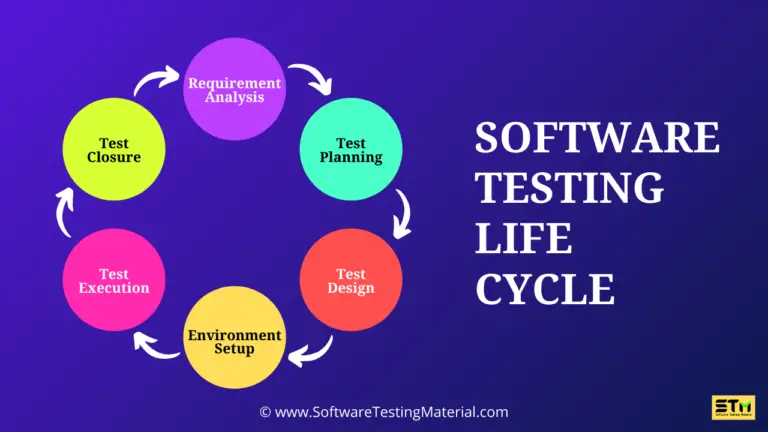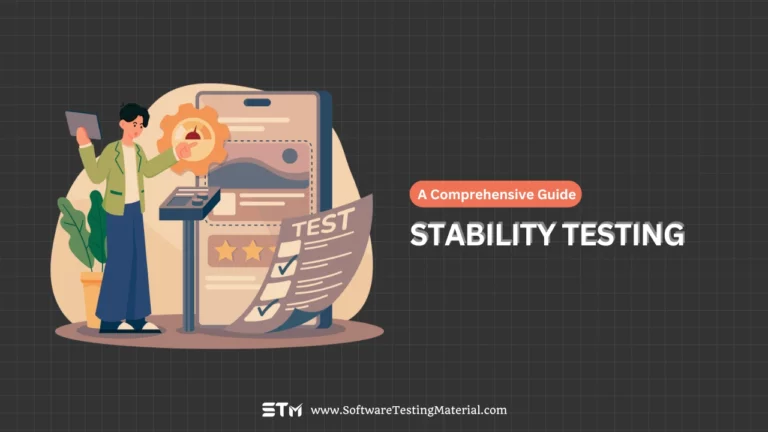Top 13 QA Skills: What Makes a Great Software Tester?
“A tester’s job is to ask the questions that the user would ask, not the ones the developer expects” – Michael Bolton.
As you can see in the above quote, starting a career as a software tester is not easy. There are many layers to it, and you need certain qualities and skills to succeed in this career. That is why, in this article, we will discuss the top 13 qualities to become a successful software tester. We will also discuss the future of software testing and related skills.
Top 13 Qualities To Become A Successful Software Tester
Let us start. What do you think, do you have these qualities? Do not worry; you can acquire them with patience and practice.
#1. Testing Mindset
Be the Sherlock Holmes of software.
You will always find deep curiosity at the heart of good software testing. That is a burning desire to explore, question, and understand how things work. An excellent software tester doesn’t just follow the test cases blindly. They think critically about:
- “why” behind each feature
- “what if” scenarios to find unexpected behavior
This curiosity uses creativity and enables you to uncover edge cases. This mindset brings functional correctness and helps in finding unusual results.
#2. Strong Analytical Mind
The puzzle solver.
Software testing is fundamentally about problem-solving or finding. You must break down complex systems. This helps you understand how components interact and anticipate points of failure. Strong analytical skills allow you to:
- See Patterns: Recognize recurring defects or behavioral anomalies.
- Predict Outcomes: Foresee potential impacts of code changes.
- Prioritization: Understand which defects are critical versus those that can wait.
A tester with sharp analytical skills can efficiently pinpoint the root cause of problems, saving time and resources throughout the development cycle.
#3. Technical Skills
Code-savvy who loves to program.
Modern software testers are not just button-clickers anymore. They are highly technical professionals who often need to work with complex systems. The following technical skills are essential for you:
- Programming Knowledge: You should know at least one programming language to create test automation frameworks (e.g., Python, Java, or JavaScript). Also, you need to debug issues and understand the developer’s perspective.
- Test Automation Tools: Learn tools like Selenium, Appium, or JUnit to automate repetitive tests and accelerate testing cycles.
- API Testing: Know about Postman or SoapUI for testing APIs.
- DevOps and CI/CD: Understand CI/CD pipelines to integrate testing into the development workflow.
As testing shifts left, with technical proficiency, testers can keep up with the demands of modern software delivery.
Note: However, if you do not like programming that much, you can still be a great tester. Do not let coding become a bottleneck in your QA career. You can easily use codeless generative AI-powered AI agents such as testRigor to write test cases using just plain English. No programming skills are needed! With the new emerging testing trends where we need to test the LLMs/chatbots for adversarial testing and hallucinations, the human eye and intuition are needed more than ever.
#4. Keen Attention to Detail
An artist who spots flaws.
Details matter in software testing. Overlooking a minor issue can lead to significant consequences, such as security vulnerabilities or data loss. Great testers have an eagle eye for detail, meticulously reviewing:
- UI and UX inconsistencies.
- Boundary conditions and edge cases.
- Cross-browser and cross-platform compatibility.
This meticulous approach helps catch defects early, reducing the cost and impact of fixing them later.
#5. Great Communication
The QA translator.
Testing is not an isolated task. By now, we know it is a collaborative effort. It requires clear and concise communication with developers, product managers, and other stakeholders. A great software tester excels at:
- Bug Reporting: Writing detailed and reproducible defect reports.
- Documentation: Creating clear test plans, test cases, and results summaries.
- Feedback: Constructively sharing insights and suggestions to improve the product.
Strong communication makes the QA process transparent and productive.
#6. Knows User Needs
A business advocate who knows what users want.
A great tester bridges the gap between technical and business perspectives. They understand the end-user’s needs, priorities, and pain points. You should test that the software delivers real value. This includes:
- Business Logic: Know how the software aligns with business objectives.
- User Personas: Test from the perspective of different user types.
- Risk Assessment: Identify high-impact areas to focus your testing efforts.
This business-savvy approach builds a product that isn’t just functional but also market-ready.
#7. Adaptable
Adapts, upskills, learns.
You see new tools, frameworks, and methodologies emerging regularly. Great testers continuously upskill to stay relevant. This adaptability involves:
- Learning New Tools: Quickly master the latest testing platforms and techniques.
- Agile Mindset: Thrive in iterative development environments. Read more about Agile.
- Experimentation: Try new approaches to find hidden issues.
Being adaptable helps you remain effective, regardless of the tools or processes in play.
#8. Team Player
Builds bridges across teams.
Quality is a shared responsibility for everyone involved. Great testers work seamlessly with developers, designers, and product managers to:
- Clarify Requirements: Make sure everyone has a shared understanding of what needs to be built.
- Pair Testing: Collaborate with developers to test features as they’re built.
- Feedback Loops: Provide timely feedback to guide development.
Strong teamwork skills keep QA integrated into every stage of the software development lifecycle.
#9. Problem Solver
Troubleshooter, not a troublemaker.
When bugs arise, a great tester doesn’t just report the issue—they dig deeper to understand the root cause. Problem-solving skills enable testers to:
- Isolate defects and identify the conditions that trigger them. Read 20 Types of Software Defects Every Tester Should Know.
- Suggest potential fixes or workarounds.
- Work with developers to debug and resolve issues efficiently.
This proactive approach minimizes downtime and maintains smoother releases.
#10. Brings in Scalability
Automation ace who thrives on scalability.
With software systems becoming increasingly complex, manual testing alone is no longer sufficient. Great testers utilize test automation to:
- Save time by automating repetitive tasks.
- Improve accuracy and reduce human error.
- Have scalability for large or complex systems.
However, they also understand the importance of balancing manual and automated testing, using automation strategically to maximize ROI.
#11. Solid Domain Knowledge
Industry insider, specialized, and knowledgeable.
Testers with domain expertise bring an additional layer of insight to the QA process. For instance:
- Healthcare Applications: Understanding regulatory compliance (e.g., HIPAA).
- Finance: Knowledge of transaction security and audit trails.
- E-Commerce: Familiarity with payment gateways, inventory systems, and customer behavior.
This specialized knowledge enables testers to anticipate unique challenges and test the software to meet industry-specific requirements.
#12. Manages Time
Be a clock whisperer.
Testing is a race against the clock. More so in Agile and DevOps environments. As a great tester, you need to excel at:
- Prioritize Tests: Focus on critical paths and high-risk areas.
- Manage Deadlines: Deliver results within tight timeframes.
- Balance Tasks: Choose and shift between manual testing, automation, and reporting efficiently.
Strong time management maintains that quality doesn’t suffer, even if under pressure.
#13. Continuous Improvement
And a perfectionist!
So, we know testing is not a one-time job. It is a continuous process and requires improvement. Great testers work towards continuous improvement. This also applies to the products they test and their own skills. They use feedback, analyze metrics, and improve their testing processes to achieve better outcomes.
QA Skills to Become Future-Proof
As a tester, you should prepare for the following current trends to stay relevant:
- AI-Driven Testing: Use artificial intelligence to predict defects and minimize testing efforts in maintenance. Testers should use AI-powered tools to automate repetitive tasks, improve test coverage, and identify failure patterns. With time, testing skills in machine learning and AI model testing will become more and more valuable.
- LLM Testing: Security testing is very important with the use of chatbots, AI agents, and other LLMs. Testers must test that these models are free from vulnerabilities: prompt injections and data leaks. Additionally, validate the output accuracy, consistency, and ethical responses from these LLMs.
- Practice Shift-Left: You should collaborate with developers earlier in the development process. You should write and review unit tests, integrate automated tests into CI/CD pipelines, and participate in code reviews. Strong communication and collaboration skills are essential for agile teams.
- Cybersecurity Domain: Test that the software is immune to modern threats. QA professionals should understand security principles and conduct vulnerability assessments. You should know about tools to test for threats like SQL injections, XSS attacks, and data breaches. Security test automation is also a valuable skill to have.
- Accessibility Testing: Test that the products are usable by all, including those with special needs. Verify compatibility with screen readers and proper keyboard navigation, app should follow WCAG (Web Content Accessibility Guidelines). Understanding accessibility tools and usability tests with diverse users will improve the product quality.
Conclusion
So now: Who is a software tester?
We think a great software tester is curious by nature. They are skilled, sharp reviewers, and awesome team players. They have technical/domain skills and business insights to keep the software functional and delightful. Today, testers must learn and adapt to new trends such as AI-driven testing, LLM security testing, shift-left practices, cybersecurity, and many more.
We really hope this article is helpful to you in your career and skill development.
Related posts:
- 20 Skills Of Highly Effective Software Tester
- Career Shift From Manual To Automation Testing
- How to Become a Software Tester
- How to write Software Tester Resume
- 10 Essential Software Testing Skills to Put on a Resume
- 100+ Professional Resume Summary Examples for Software Testers
- 10 Professional Software Tester Cover Letter Examples to Land QA Jobs






